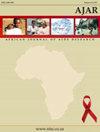信息技术培训与应用对村企财务报表质量的影响
IF 1.1
4区 医学
Q4 PUBLIC, ENVIRONMENTAL & OCCUPATIONAL HEALTH
引用次数: 0
摘要
本研究旨在了解培训和信息技术的使用对村企财务报表质量的影响。本研究采用定量描述方法,数据来源为直接从被调查者那里获得的原始数据,通过向戈龙塔洛县塔邦戈街道的村级企业管理人员和村干部发放问卷。总人口54人,采用有目的抽样法,共抽样30名村企行政人员。研究结果表明,培训变量(X1)对村企财务报表质量(Y)有部分正向显著影响,信息技术使用变量(X2)对村企财务报表质量(Y)无显著影响。培训(X1)和信息技术使用(X2)变量对村企财务报表质量(Y)有显著的正向影响。本文章由计算机程序翻译,如有差异,请以英文原文为准。
The Effect of Training and Use of Information Technology on the Quality of the Financial Statement of Village-Owned Enterprises
This research aimed to figure out the effect of training and the use of information technology on the quality of the financial statement of village-owned enterprises. This research employed a quantitative descriptive method where the data source of this research was primary data obtained directly from respondents through questionnaires distributed to village-owned enterprises administrators and village officials in Tabongo Subdistrict, Gorontalo Regency. Besides, the total population amounted to 54 people, with a total sample was 30 village-owned enterprises administrators determined by using purposive sampling. The findings denoted that partially, the training variable (X1) had a positive and significant effect on the quality of the financial statement of village-owned enterprises (Y), the use of information technology variable (X2) had no significant effect on the quality of the financial statement of village-owned enterprises (Y). Meanwhile, simultaneously, the training (X1) and the use of information technology (X2) variables had a positive and significant effect on the quality of the financial statement of village-owned enterprises (Y).
求助全文
通过发布文献求助,成功后即可免费获取论文全文。
去求助
来源期刊

Ajar-African Journal of Aids Research
医学-公共卫生、环境卫生与职业卫生
CiteScore
1.80
自引率
8.30%
发文量
38
审稿时长
>12 weeks
期刊介绍:
African Journal of AIDS Research (AJAR) is a peer-reviewed research journal publishing papers that make an original contribution to the understanding of social dimensions of HIV/AIDS in African contexts. AJAR includes articles from, amongst others, the disciplines of sociology, demography, epidemiology, social geography, economics, psychology, anthropology, philosophy, health communication, media, cultural studies, public health, education, nursing science and social work. Papers relating to impact, care, prevention and social planning, as well as articles covering social theory and the history and politics of HIV/AIDS, will be considered for publication.
 求助内容:
求助内容: 应助结果提醒方式:
应助结果提醒方式:


